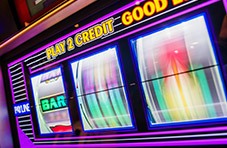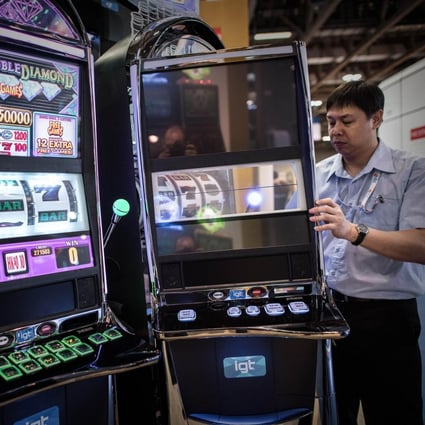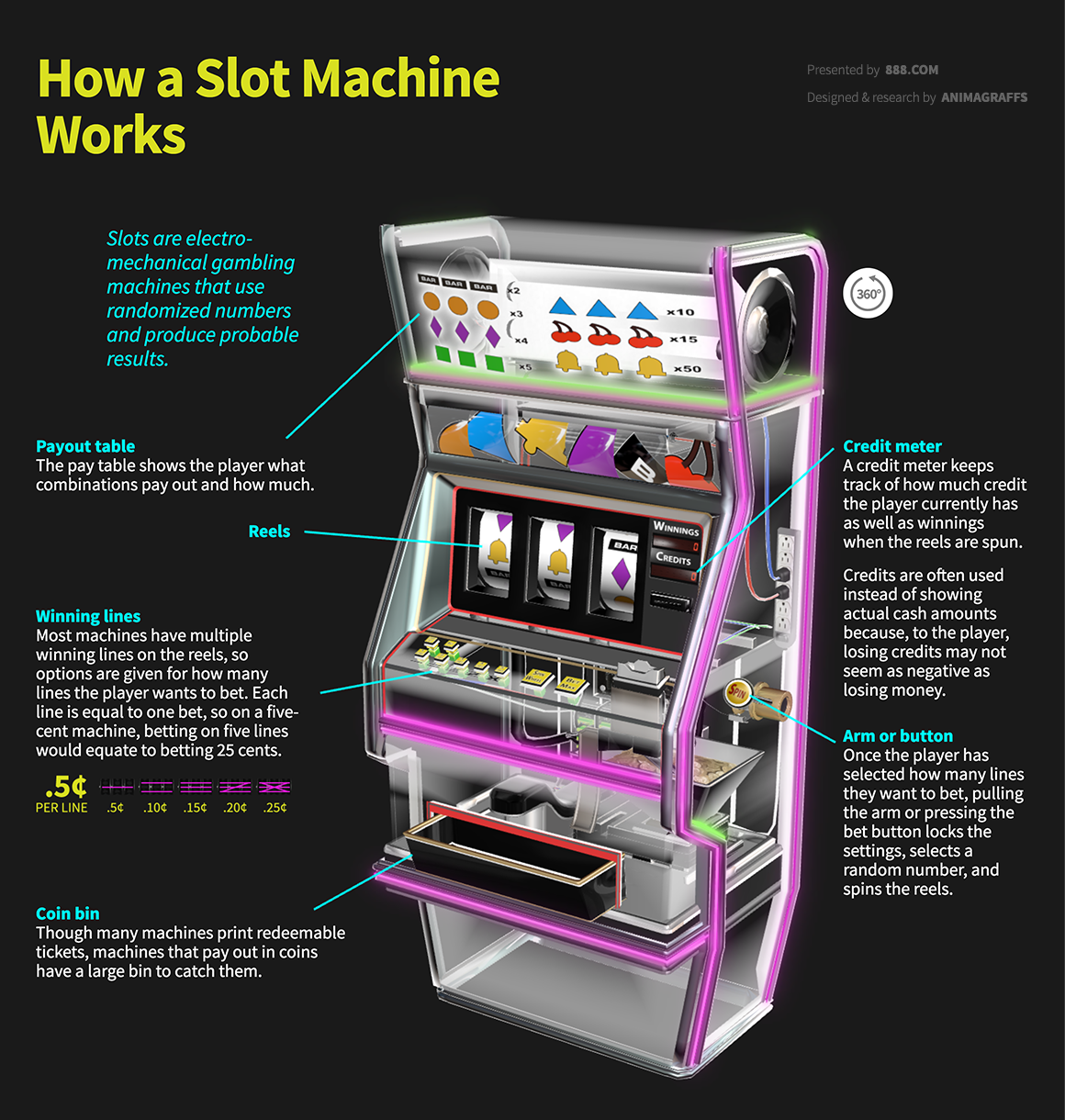Random Number Generator In Slot Machines
After all, the goal of the slot machine is for the house to make money. The math behind slot machines is quite involved: much too involved for a Stack Overflow answer. How you generate the random numbers, assuming you get a uniform distribution, is not a major concern compared to setting up your wheels to give a consistent payout. Online casinos fulfill this requirement for online slots by using a random number generator (RNG). The random number generator is an algorithm generated by a computer that online casinos use to randomize the results of a spin. It does this by generating a sequence of numbers, each number corresponding to a symbol on the reels, which one cannot. As you know, the random number generator in the slot machine is continuously working even when the machine is not in play. So even though one patron feels cheated, their run-in ultimately led to pressing the spin button at that exact millisecond when the RNG was on the winning combination.

In 2014 casinos across the United States discovered that a number of patrons were winning at slots. For anyone who has a passing interest in maths, or has played a slot machine, would know: this should be impossible! “The house always wins“, is a saying that’s actually mandated by law for slot machines in many countries.
How do slot machines work?
Simplifying things a bit, a slot machine is a random number generator which picks a number between 0 and 100 randomly when the punter puts in a coin and presses a button. If the number is above 55, the punter “wins” and there is some payout — otherwise the house “wins” and keeps the coin. The house should always win in the long run: they have the mathematical edge.

But what if the punter knows what number the machine is going to pick? If you could know that, you would be able to press the button when you know you’re going win. How could a punter ever know what random number the machine is picking? The trick is that slot machines don’t (usually) pick random numbers! This is because computers are very much not-random: they can only follow instructions. A computer which doesn’t follow its instructions to the letter is not a good computer. Sadly, “roll a die” is not an instruction that any computer can understand.
Pseudo-random numbers
Instead, machines use a pseudo-random number generator. As the name suggests, this technique generates numbers that appear random: each number generated seems to be unrelated to the ones that came before, and has an equal probability of coming up. To make a pseudo-random number generator all you need is a bit of maths, and a complicated enough formula. A common formula to get random numbers is called the Mersenne Twister, which takes a “seed” number to start, then does a whole heap of maths on it to spit out a series of pseudo-random numbers. They are not truly random as if you put in the same seed, it will spit out the same numbers.

Now, the slot machine’s pseudo-random number generator doesn’t just use a single seed, and some of its seeds may even depend on time or other hard-to-know-precisely variables. However, with a long enough observation time, and some really smart reverse-engineering, it is possible to recreate the entire formula: you’ve know cracked that slot machine, and know when to press the button such that you beat the house odds.
Really truly random
If you wanted to create a truly random number generator you need an input to your complicated formula that is truly random: just picking your seed isn’t an option. Some common ways to get this random number is to use something like the timing of keystrokes or mouse movements as in the Fortuna method, or atmospheric noise (like the noise picked up by a radio antenna) as used by RANDOM.ORG. However perhaps the most robust way is to use radioactive decay, like the Hotbits service.

Using radioactive decay relies on the fundamental laws of quantum mechanics to ensure that the numbers are actually, truly, irreproducibly random. The chance that a single element will decay and create a “blip” at your detector is just that: a pure chance. There is no way to know, regardless of how good your measuring equipment just when a radioactive source will decay. This makes it an ideal place to find truly random numbers.
In the end, this technique doesn’t save the casinos. They are unwilling to replace or upgrade all of their slot machines, so there will always be a chance that another enterprising hacker will work out how to reproduce their “random” numbers, and start beating the house again!

Random Number Generator In Slot Machines
For some players, the way slot games work is a bit of a mystery. Slots are entertaining, unique and can be very rewarding, especially progressive jackpot slots. Although regular slots and progressive slots work the same way, the latter come with a continually growing jackpot that can change your life as it currently is. So how do you beat the odds and overcome the limit set by the return to player (RTP) percentage? When it comes to interaction with the outcome of the spin, players have little to none.
Or do they?
Before we delve deep into the rabbit hole here are few terms you should take note of. You must have a clear understanding of these in order to grasp the idea behind this approach.
Beat Random Number Generator Slot Machines
- Return to Player or in short, RTP– The theoretical amount of money the slot will/needs to return to the players, by players meaning back to the public, not an individual. It’s expressed in percentages (%). RTP is the number that ensures a profit on the casino operator’s end. If this parameter didn't exist, there wouldn't have been any online casinos.
- Hit Rate– The frequency of spins that end up with a win. The size of the prize is irrelevant, hit rate tracks only the frequency of winning outcomes. Hit Rate is also expressed in percentages (%). It determines how fun the game is in the eyes of the player if we strip the game off of the flashy symbols and unique bonus features.
- Returns - The money you have at your disposal once you stop playing. If you've made a profit, you have returns. If you've neither won nor lost, you're at the point of breakeven. Breaking even is good enough for us, but when the balance is positive and higher than the starting one, now that's what you're looking for.